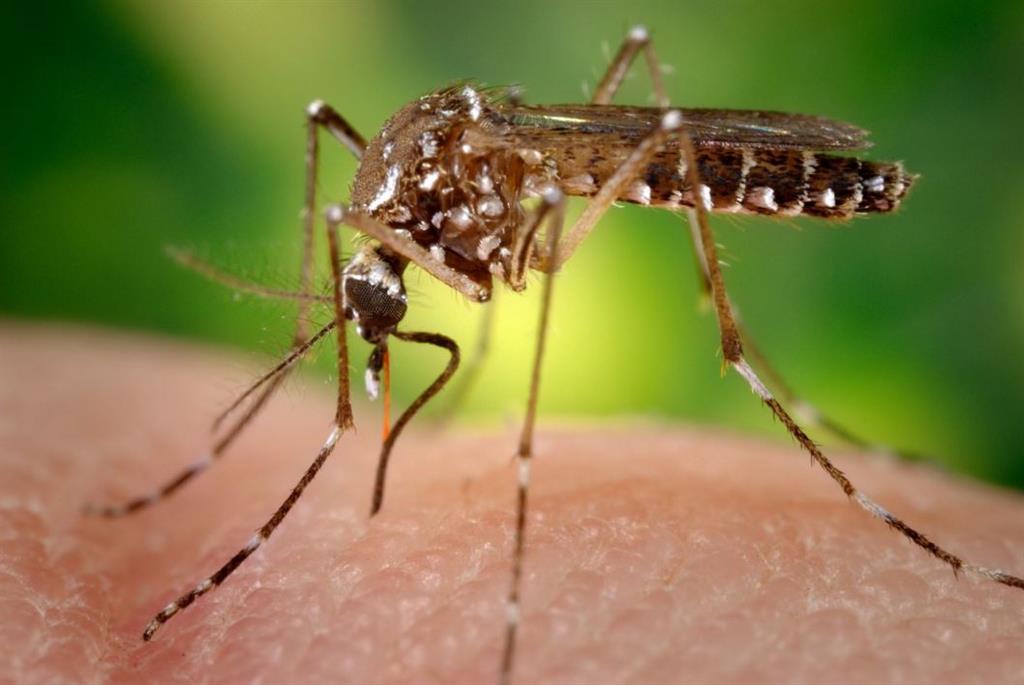ZIKA virus in Monmouth County? A mosquito control perspective
 The primary means of contracting Zika virus is through the bite of an infected mosquito. Not all mosquitoes can transmit Zika virus or any mosquito-borne disease. A mosquito that can pass on a disease is called a vector of that disease.
The primary means of contracting Zika virus is through the bite of an infected mosquito. Not all mosquitoes can transmit Zika virus or any mosquito-borne disease. A mosquito that can pass on a disease is called a vector of that disease.
The primary mosquito vector involved in the transmission of Zika virus is Aedes aegyptii, a tropical species not found in New Jersey. There is currently no evidence of Zika virus in any mosquitoes in the continental United States, much less Monmouth County.
In laboratory trials, Aedes albopictus, also known as the Asian tiger mosquito, has been shown to be a competent vector but there has been no evidence of field transmission. The CDC is currently researching how competent this mosquito and other species are at transmitting Zika.
There are many factors that make the local transmission of Zika virus less likely than likely.
1. A local Asian tiger mosquito would have to bite someone who traveled, contracted Zika virus and returned within a week of the onset of symptoms. During this week of symptoms, the virus count in the person’s blood is very high and can be picked up by a biting mosquito. After that, the level of virus drops, lowering the chances that a local mosquito will pick up the virus. The NJ Department of Health advises all travel cases of Zika virus to take all precautions to avoid being bitten by a mosquito while exhibiting symptoms here at home.
2. Unlike Aedes aegyptii that only feed on humans, Aedes albopictus will also feed on other animals lessening the probability of transmission from person to mosquito to another person.
3. Culturally, we have less exposure to biting mosquitoes. We have screens in our windows and spend more time indoors in air conditioned buildings.
4. If a mosquito picks up the virus, the mosquito must live long enough for the virus to replicate in the mosquito’s body and migrate to the mosquito’s salivary glands in order to be passed on while the mosquito is extracting blood (biting). It is still unclear how well Zika virus survives in Aedes albopictus.
5. Aedes albopictus is a weak flier and stays within a few hundred yards of the container from which she emerged. Any outbreak would be small scale and localized.
6. Winter will break any cycle of amplification and transmission. Aedes albopictus does not overwinter as an adult; eggs are laid that will hatch with rains in May. Currently, there is no information on whether or not the virus can be passed on from adult mosquito to mosquito egg.
Comprehensive mosquito control programs in the United States keep local incidence rates of mosquito-borne diseases very low compared to high global incidence rates. This has been demonstrated for Dengue fever, Chikungunya and West Nile virus.
The Monmouth County Mosquito Control Division will continue to implement a comprehensive integrated mosquito management program that includes:
- Surveillance of mosquito populations and disease- the driver of control operations. Local mosquitoes are collected and tested for West Nile virus, Eastern Equine Encephalitis (EEE) and Dengue from May through October.
- Source control: elimination of water habitat – removing containers of water from the environment
- Larvicide: Treat larval habitats (standing water) with registered and recommended mosquito control products. This strategy is far more efficient by controlling mosquitoes in relatively compact sites of water rather than the broader air column where flying adult mosquitoes reside. Pesticides targeting larvae are also more environmentally friendly.
- Adulticide: Treat for adult mosquitoes when surveillance triggers a necessary response. Adult mosquito control is implemented when surveillance indicates the risk of disease transmission is elevated or if the sheer numbers of mosquitoes are unbearable.
- Public education: getting the word out to property owners to regular check for standing water and do their part to eliminate these mosquito habitats
Each day, the CDC and other world health agencies provide more information and updated guidance about Zika virus. The Monmouth County Mosquito Control Division along with the County's Health Department are vigilantly following these developments and will integrate any applicable guidance into our operations. For example, there is currently no test available in New Jersey to look for Zika virus in mosquitoes. If testing mosquitoes for Zika virus becomes available, the Mosquito Control Division will certainly participate in the program.
ZIKA VIRUS RESOURCES
US Centers for Disease Control & Prevention: www.cdc.gov/zika
NJ Department of Health: http://www.nj.gov/health/cd/zika/index.shtml
Monmouth County Health Department: www.visitmonmouth.com/health
Check with your Local Health Department – Your Local Health Officer
Local Health Department Directory: http://www.state.nj.us/health/lh/directory/lhdselectcounty.shtml